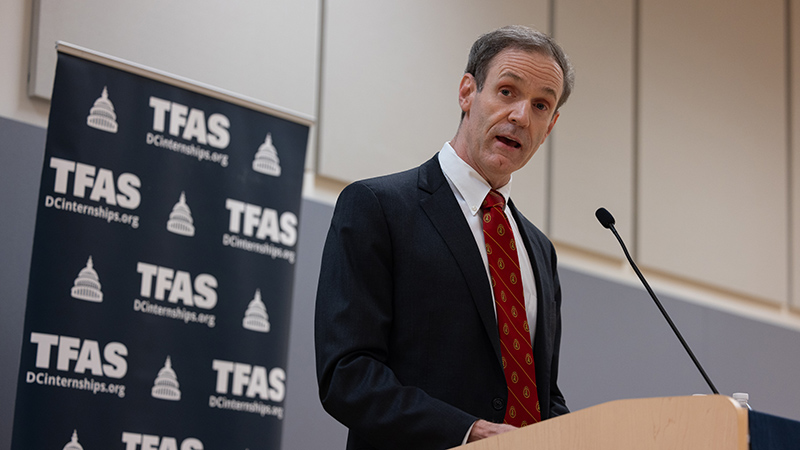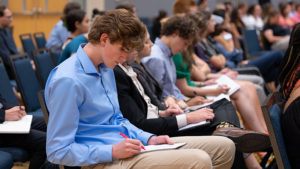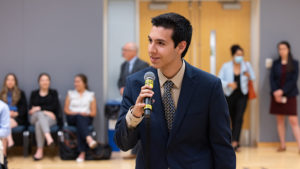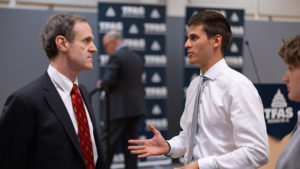
This summer, The Fund for American Studies (TFAS) hosted the annual Neal B. Freeman Lecture with honored guest Dr. Samuel Gregg on the topic of America as a commercial republic. Dr. Gregg serves as a distinguished fellow in political economy at the American Institute for Economic Research (AIER), a visiting scholar at the Heritage Foundation, an affiliate scholar at the Acton Institute, a fellow of the Royal Historical Society, a member of the Royal Economic Society, and a contributing editor at Law and Liberty.

Neal Freeman’s generosity and support allows TFAS to welcome fascinating speakers who discuss freedom, ethics and the fundamental concepts of a free society. Dr. Gregg’s presentation gave students the chance to consider the American principle of free markets.
Dr. Gregg outlined why students should consider the U.S.’s founding fathers and key foundational documents as role models when considering the economic fate of the nation. He argued that a free-market economy is the best solution for the United States and explained that markets are not just about economic growth.
“I see no reason why America cannot embrace the habits and disciplines associated with markets while also grounding them in the language, norms and virtues of the American experiment,” Dr. Gregg said.

He often referred to America as the commercial republic throughout the presentation. This idea brings together the understanding of the strong empirical case for limited government, and free markets while representing the true American identity. While referring to George Washington’s Farewell Address, he mentioned that a republic contains much more than the commitment to a sovereign regime. Commerce provides an interpretive key as to how this republic understands itself.
Dr. Gregg then proceeded to analyze the importance of understanding key principles of America as a republic through an explanation of the well-known Federalist Papers. Based on the founding fathers, Dr. Gregg claimed that free enterprise, competition and trade would be integrated into the American identity.
In his critique of today’s society, he said that “21st- century American economic life profoundly influenced as it is by the New Deal and Great Society is far removed from the spirit that animated the idea of America as the commercial republic.”

He emphasized two important reasons for grounding the case for the market economy in American ideals. The first is dissociating all the institutions and ideas that define markets from obscure globalism. The second is to take into consideration the importance of entrepreneurship, competition and trade to the foundation of America.
After the lecture, students asked Dr. Gregg questions such as, “How would you propose exporting and ensuring the growth of liberty-based ideas in other countries that we need on our side?” as well as his “view on socialist policies integrated with our free market.”
Watch the full lecture here:

